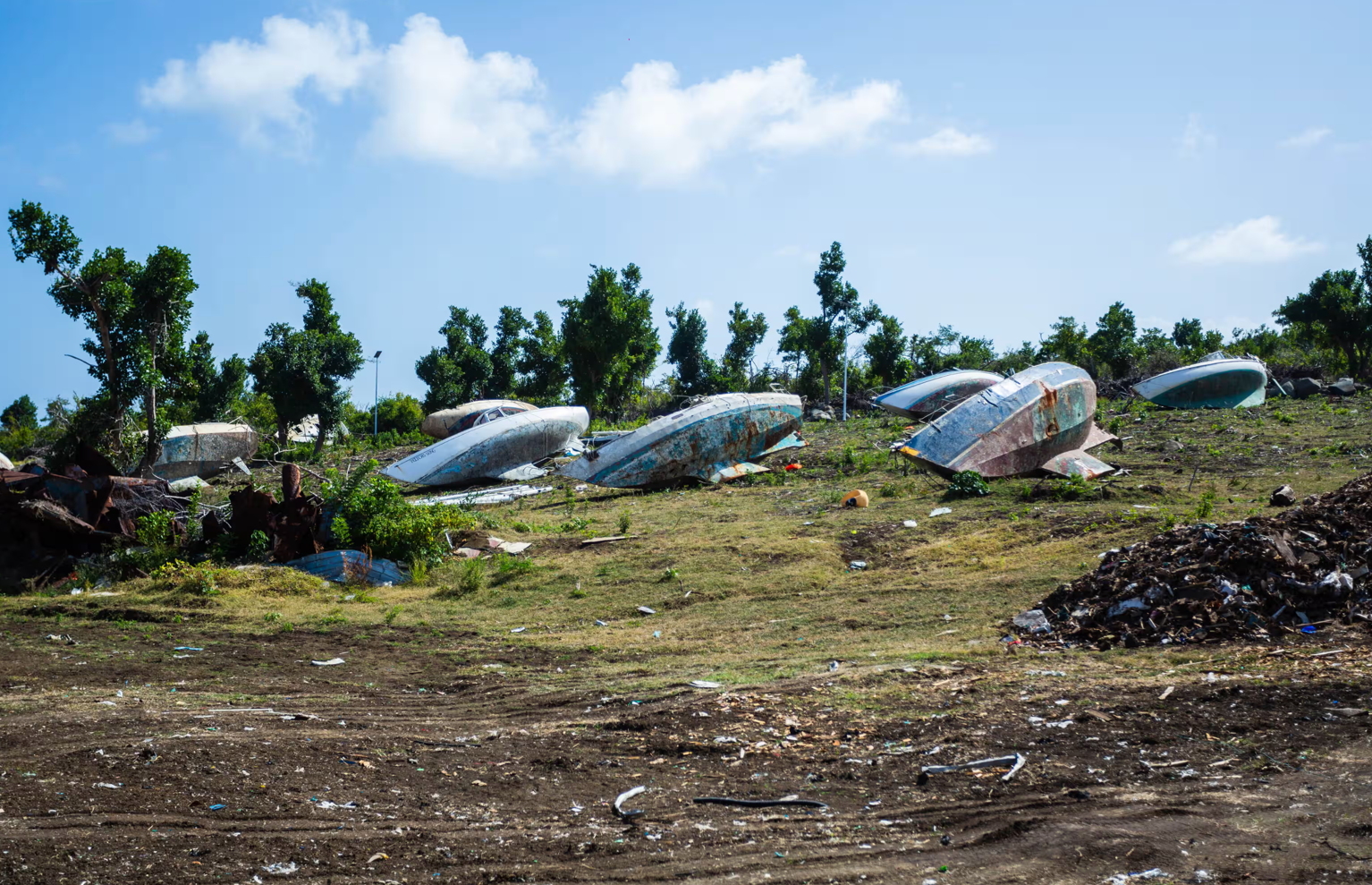
Today, hollowed buildings and makeshift shelters remain scattered across the island, where many residents are still without permanent homes. Artists Michael Alexander and Yolanda VendenDunden, who lost their house in the storm, now live in a tent on the foundation of what used to be their home. "We've rebuilt what we can from scraps," said Alexander, "but the heat is relentless, and there's no relief."
Drought, erosion, and rising seas
The hurricane's aftermath has collided with another growing threat: drought. Farmers like Gifford Andrew say the heat is getting worse every year, drying up land and making it harder to grow crops. "I lost everything in Beryl. Now I'm starting over, but without water, it's nearly impossible," he said.
Climate change is hitting Grenada from all sides. Government officials warn of intensifying hurricanes, prolonged dry seasons, and rising sea levels eating away at the coasts. "We're losing beach space, crops, and livelihoods," said Davon Baker, an environmentalist and local official on Carriacou.
Climate justice and reparations: two sides of the same coin
Grenada's prime minister, Dickon Mitchell, has called for greater accountability from wealthy nations whose historical emissions helped drive the climate crisis. Last year, Grenada joined a coalition of vulnerable countries in seeking an advisory opinion from the International Court of Justice on states' responsibilities for climate harm.
But Grenada isn't only demanding climate justice — it's also renewing its call for reparations for slavery. Caribbean leaders say the legacy of centuries of exploitation continues to limit their development and leaves their nations more vulnerable to climate shocks.
Arley Gill, head of the Grenada Reparations Commission, argues that the climate crisis and the Caribbean's underdevelopment share the same root: colonialism. "The Industrial Revolution, which powered modern emissions, was built on the backs of enslaved Africans," he said. "Our vulnerability to climate change is a direct consequence of slavery and colonialism."
Gill believes the Caribbean's calls for reparations and for climate action must be understood as part of the same historical injustice. "We were robbed of our resources, and now we don't have the means to protect ourselves from the consequences," he said.
A future built on hope — or abandonment
On Carriacou, the climate crisis is not a distant threat. It's already arrived. Local minister Tevin Andrews recalled losing a close friend during Hurricane Beryl and warned of worse to come. "Every year, we prepare ourselves from July to December, hoping we're not next," he said. "We feel climate change in the heat, in the sea, in the destruction."
Andrews criticized the inaction of former colonial powers and wealthy countries. "They built their wealth off our suffering and left us with broken systems. Their silence speaks volumes. They don't care," he said. "But we're the ones who will keep suffering. We will face stronger storms, disappearing coastlines, and maybe one day, the loss of our entire islands."